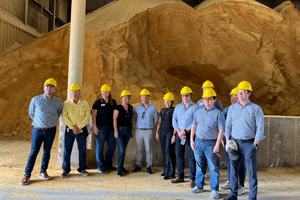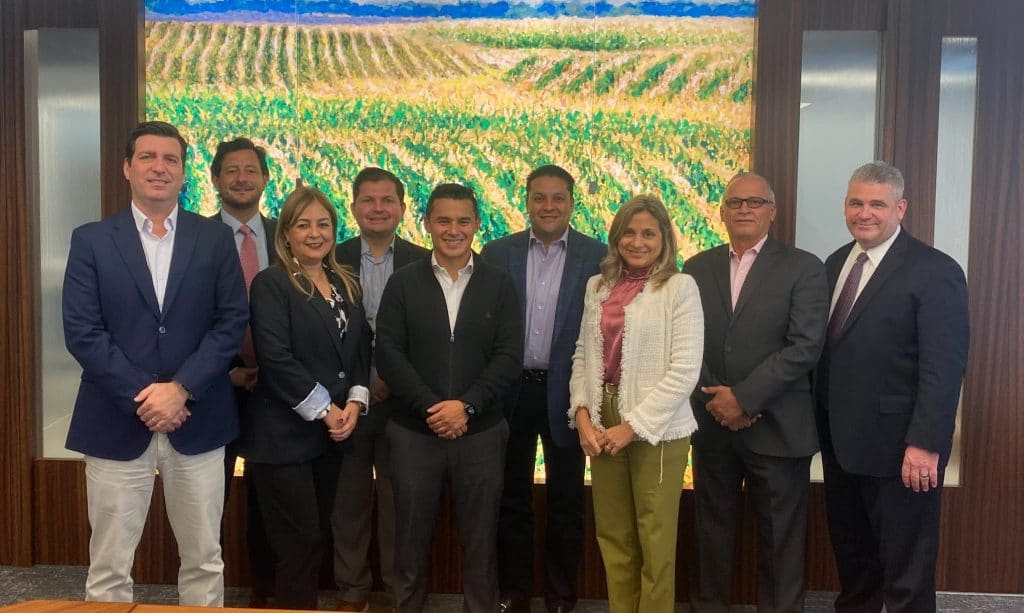Key public and private sector Panamanian stakeholders were in the United States this week to engage with industry experts and policymakers regarding the economic and environmental benefits of implementing ethanol blend policies; the technical and operational considerations to be addressed; and to become familiar with the U.S. ethanol industry and the opportunities to complement local ethanol production with imports.
Led by the U.S. Grains Council’s (USGC) Latin America (LTA) regional ethanol consultants, Juan Diaz and Carlos Suarez, the group visited Washington, D.C., before traveling to Iowa to see the ethanol industry in action.
The program was a part of ongoing market development efforts in Central America, where the Council’s LTA regional office seeks to demonstrate the feasibility of implementing ethanol policies and enable ethanol use and imports to Panama.
“Hosting the Panamanian stakeholders responsible for developing new ethanol policy and legislation is of great importance. It allows the Council to be the technical partner that supports the development of ethanol markets in the region using a model in which local production and imports complement each other,” Suarez said. “The Council’s program for the Panamanian officials from the executive and legislative branches and representatives of ethanol producers and vehicle distributors will help to address and overcome the policy and technical obstacles associated with ethanol blending.”
While in Washington, the group had the opportunity to hear from organizations leading the way for U.S. ethanol, including the Council, National Corn Growers Association, Growth Energy and Renewable Fuels Association. Each organization provided insight into the industry, making presentations on ethanol policy, production and environmental benefits.

After meeting with Iowa Corn Growers Association staff in Des Moines, the group visited several convenience stores, a pipeline facility and POET, an ethanol manufacturer, before ending their journey with a farm tour. By taking part in a variety of tours, the group was able to see the U.S. ethanol value chain in its entirety at work.
“Being able to visit Iowa and learn about the process of producing corn, transforming it into ethanol and distributing it to consumers was a great opportunity for the Panamanian delegates who want to incorporate into their policy the practices that have allowed the U.S. corn and ethanol industry to succeed,” Suarez said.
The Council will continue to provide policy and technical support to Panamanian stakeholders and assist in the development of the Panamanian ethanol market as they spearhead efforts to re-introduce ethanol blending in the country.
About The U.S. Grains Council
The U.S. Grains Council develops export markets for U.S. barley, corn, sorghum and related products including distiller’s dried grains with solubles (DDGS) and ethanol. With full-time presence in 28 locations, the Council operates programs in more than 50 countries and the European Union. The Council believes exports are vital to global economic development and to U.S. agriculture’s profitability. Detailed information about the Council and its programs is online at www.grains.org.

